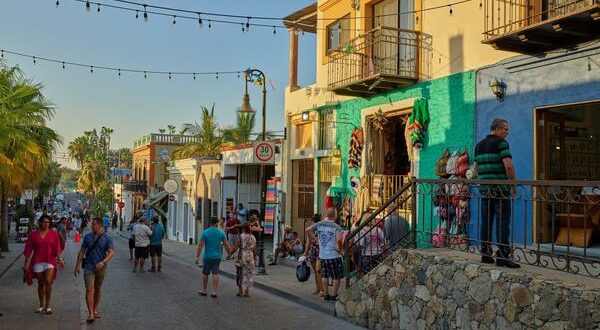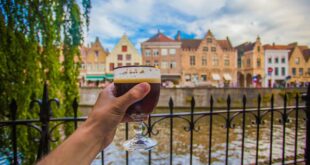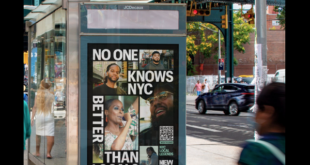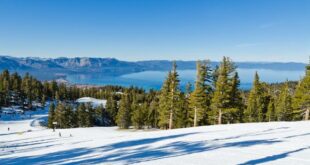[ad_1]
Tourism in Mexico and Latin America suffered a temporary standstill as a result of the coronavirus disease (COVID-19) pandemic. This temporary paralysis not only hit Caribbean economies and employment hard but also many local communities in the Latin American region.
Some companies have lost personnel along the way as the industry began its path to recovery.
What have they learned through it all?
From hotels to destinations, tourism officials and executives in the region share their lessons learned.
Gonzalo del Peón, President Group, AMResorts Americas & Global Commercial said: “There are great learnings. We had a crisis in terms of personnel, here there was no support or subsidy to maintain vacancies, so we had to force ourselves to reopen hotels very soon and pay the payroll. The crisis that we have today is a lack of personnel, we are hiring in the Riviera Maya and we do not find enough personnel and this generates that more salary must be offered. There is definitely not a situation of operating with less staff, we continue to hire. We learned to do more with less, but not in the hotel, but in administrative areas and there we created synergies. We learned to do more with fewer people”.
An impact scenario shows that the slump in tourism may cause total GDP growth in the Caribbean and Latin America to fall by 8% points and 1% points, respectively, while total employment could potentially decline by 7% points in the Caribbean and 1% point in Latin America.
“We must always have our feet on the ground, and we must be attentive to our needs and those of the family and of our collaborators and clients and develop greater empathy with them, to develop a concern for our community and protect it and where we live, where the business is. To be more efficient and respect nature. This was a shake and a yank on the ears for everyone to put a stop to predation and become more aware of where we live. There is a flutter of staff turnover. In January it was the highest month with 14% and it was very strong because we had high occupancy. Today it does not even reach 4%. It is important not to tire the staff with excessive shifts and overwork and to avoid burn-out, which encourages people to leave”, said Ricardo Orozco Arce – vice president of Operations at Hoteles Solmar & Resorts Los Cabos.
“Many lessons. Before the pandemic, I did a lot of home-office work, now I’m more on the property. We learned to value tourism and how relevant local and international tourism is. To take care of the staff we dedicate ourselves to Wellnest. We were very attentive to our staff; we gave them all the support and we respect their traditions and habits. We greatly respect their grief”, said Elena Tristain, commercial director at Hotel Amatte Wellnest in San Miguel de Allende.
As countries have taken measures to mitigate the impact of the crisis on tourism, recommendations are provided to step up the sector’s preparation for the economic recovery, while enhancing diversification as well as environmental and social sustainability.
“The lesson to follow is that we must not give in to reinvention and this applies to all tourism service providers and servers in general. To digitize ourselves and enter this new scheme. There were those who wanted to travel with the pet or work remotely from a hotel or Airbnb. The diversification of the product played a very important role, adventure tourism began to look for us. Also Give back tourism: There are people who want to paint a school, work with low-income communities, go hiking and ecotourism, and donate books to schools. This was the demand. We want to go do something, not just receive, they told us”, states Sugei Cárdenas, Public Relations at the Fideicomiso de Turismo at Puerto Vallarta.
Tourism has been one of the fastest and hardest-hit sectors of the economy. According to the UN World Tourism Organization (UNWTO, 2020), international tourist arrivals fell between 60% and 80% in 2020.
“We learned to value tourism, especially those who did not give it this priority. As soon as tourism stopped working, more than 133 economic branches that depend on tourism knew their worth. Inside, there was the urgency and need to work under a framework of sustainability that is no longer a luxury or a taste or an option, but an urgency. The crisis hit us very hard, but we were prepared, in a process of product re-diversification, of segments, of inclusion of other regions. We work on the issue of biosafety with a robust certification exercise that served as learning for the industry. We learned not to do the promotion and marketing of the products in a massive way, blending all the tourists into the same group, according to their age and the lights they have at home. No, we did more cleverly. Technology made us advance many years in a year”, reflected Michelle Fridman, Tourism Secretary at Yucatan State.
This sector is not only one of the main contributors to exports, the economy and employment in the Caribbean, but also in many cities and local communities in Latin America.
Considering the high uncertainty about the duration of the pandemic in different parts of the region, and associated contingency and subsequent relaxation measures, it is difficult to estimate the short, medium and long-term impacts of the pandemic on tourism. But what the different sectors in the industry learned is to be more intrepid, more open, flexible and to take care of their natural environment and human resources.
For the latest insight on travel around the world, check out this interactive guide:
For the latest travel news, updates, and deals, be sure to subscribe to the daily TravelPulse newsletter here.
[ad_2]You can read more of the news on source
 Travelsmart
Travelsmart



